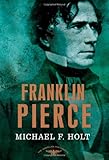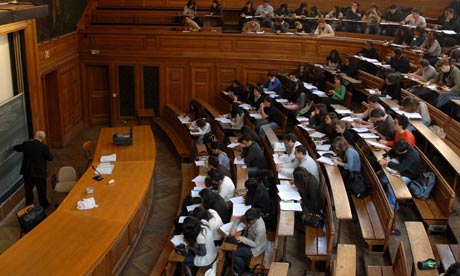Friday, January 31, 2014
 |
|
Teachings from works published by Shambhala Publications.
|
Book News
A company in Portugal is interested in publishing a collection of my poetry.
http://medulalivros.blogspot.pt/
Many thanks to Manuel Domingos who translated several of my poems back in 2008.
http://medulalivros.blogspot.pt/
Many thanks to Manuel Domingos who translated several of my poems back in 2008.
Tricycle Daily Dharma January 31, 2014 | |||
Right Understanding
- Jeffery Zaleski, "The Science of Compassion"
|
THINKING ABOUT THE UNTHINKABLE
Fukushima will change your life. A metaphor for all that's wrong in the world.
http://smdp.com/scientists-to-test-malibu-kelp-for-fukushima-radiation/131611
http://smdp.com/scientists-to-test-malibu-kelp-for-fukushima-radiation/131611
Thursday, January 30, 2014
GLOBAL TIES US
Today I spoke at the Global Ties U.S. 2014 National Meeting (Renaissance Washington DC Downtown Hotel). I was on a panel with Emmanuel Audelo from Mexico. He is the co-founder of COLECTIVO MURAL which seeks to recover and renovate community and public spaces in Mexico. Audelo works with young people at risk using graffiti as outreach to improve social environments.
In my remarks following his presentation I mentioned how it was important to understand the purpose and role of such art projects as COLECTIVO MURAL.
1. Helps with "nourishment" for young people and an increase in the appreciation for all of the arts.
2. Upholds cultural memory and traditions.
3. Serves as a key for a young person to understand race and gender issues.
4. Art has a healing component; helping with trauma as result of violence or natural disasters; healing for the individual as well as the community.
5. Art projects can open the door to civic engagement.
6. Empowerment for those involved in the project.
In my remarks following his presentation I mentioned how it was important to understand the purpose and role of such art projects as COLECTIVO MURAL.
1. Helps with "nourishment" for young people and an increase in the appreciation for all of the arts.
2. Upholds cultural memory and traditions.
3. Serves as a key for a young person to understand race and gender issues.
4. Art has a healing component; helping with trauma as result of violence or natural disasters; healing for the individual as well as the community.
5. Art projects can open the door to civic engagement.
6. Empowerment for those involved in the project.
NYERE NEWS
Magic number for my son's basketball team to reach the playoffs is 1.
Salem defeated Delaware Tech 71-49 tonight.
 |
A TALE OF TWO CANDIDATES:
Andy Shines While Gray Scowls at Mayoral Forum
It was a tale of two candidates at last night’s mayoral forum, hosted by the DC for Democracy coalition. Andy’s performance was crisp, strong and confident. Mayor Gray was defensive and uninspired, just going through the motions of being a candidate.
From the outset, Andy hammered his message that the District needs fresh leadership and a new vision, and many in the audience of 200 applauded him. He trumped Gray and the other candidates on several issues.
On increasing the minimum wage for District workers, Andy pointed out that he was years ahead of the Council. He was already paying a minimum wage of $10.50 long before the mayor and the D.C. Council “caught up” late last year with legislation to help minimum wage workers. Andy noted that he is the only candidate who has actually created jobs (530 employees at five businesses).
Andy also separated himself from the pack on his treatment of returning citizens. He has employed returning citizens at his businesses, giving them a second chance to be productive members in their communities.
But while Andy was hiring returning citizens, Gray underfunding the Office of Returning Citizens Affairs. The District already has some 60,000 returning citizens, and nearly 8,000 more men and women return to the city each year from prison or jail. “We need a mayor who genuinely cares about our returning citizens and is willing to put some skin in the game,” he said.
Overall, last night’s forum was a good tune-up for next week’s Ward 4 Candidate Forum on February 5, starting at 7 pm at Paul Public Charter School, 5800 8th Street NW.
So other candidates beware: Andy is ready to rumble!
Must-Read Feature on Andy in The Washington Informer
Barrington Salmon’s front-page profile of Andy in the new issue of the Washington Informernewspaper is a must-read. He captures Andy’s persona, his passion for art and culture, his love for DC, and his vision for the city’s future. Please read and share.
Andy4DC http://www.andy4dc.com/ |
Paid for by Committee to Elect Andy Shallal. Robin Weiss, Treasurer.
|
 |
Thanks for offering to volunteer with the Andy4DC mayoral campaign. With the race heating up, there are many opportunities available to engage, and we will be reaching out regularly to volunteers like yourself.
First, it's important we have your information up to date. Log in to our website and familiarize yourself with our volunteer panel. Click on Join team Andy to tell us what you'd like to do, and leave your comments there for our organizers. DC residents are encouraged to provide their ward numbers.
Andy cannot bring progressive change to DC without your help. We need volunteers who can pass out literature, talk to voters, reach out to those most disenfranchised, and bring their own creative ideas to the #Andy4DC movement. We have a couple events coming up soon:
This Saturday
Come out and canvas the 16th St Corridor in Ward 4 with us! Meet at 1440 Whittier PL NW at 10:00 AM. Contact Leo at leo_alexander1@yahoo.com or give him a call at 202-276-0083 if you'd like to participate. We need folks to knock on doors, distribute literature, wave signs, distribute yard signs, enter data and, most of all, have fun helping a great candidate! Wednesday, Feb 5, 7-9:30PM
Ward 4 Mayoral Forum at Paul Public
Come out and show your support for Andy at the Ward 4 Mayoral Debate and Endorsement Forum! If you're a registered Ward 4 voter, you may vote for Andy at the end of the evening. Click the link above to RSVP or text the word WARD4 to (202)733-6161, and we'll text you back with the event details!
That's all for now. Check out our other events and stay tuned for more opportunities!
Andy4DChttp://www.andy4dc.com/ |
Paid for by Committee to Elect Andy Shallal. Robin Weiss, Treasurer.
|
THE BIG BOOK
Yesterday I received a copy of BARTLETT'S FAMILIAR BLACK QUOTATIONS edited by Retha Powers (Foreword by Henry Louis Gates, Jr.). This book contains three references to my work. I was happy to see an excerpt from a poem I wrote in memory of Oscar Romero, the archbishop of El Salvador who was assassinated in 1980.
Wednesday, January 29, 2014
COUNTDOWN TO BLACK HISTORY MONTH...
The Scholars: An Interview with Lonnie Bunch- founding director of the National Museum of African American History and Culture
News from THE ARTS BANDITS
According to a Shallal family member here is what's on Andy Shallal's playlist. The Arts Bandits have been trying to get this information for weeks. Ah....the sweet "Vote" of success.
Andy likes:
Anthony Hamilton
Amy Winehouse
Thievery Corporation
Eric Clapton...and much more.
Andy likes:
Anthony Hamilton
Amy Winehouse
Thievery Corporation
Eric Clapton...and much more.
Tuesday, January 28, 2014
|
Monday, January 27, 2014
 | |||
| |||
| Millions of Americans will watch President Obama deliver his State of the Union address tomorrow night, and the folks who want to get the most out of the speech are watching onWhiteHouse.gov. Our enhanced version has the graphics and charts you need to get the most out of President Obama's plan for 2014. That's why more than 1 million viewers watched our enhanced version last year -- and it's why so many folks have already signed up to watch this year. RSVP to watch tomorrow night at 9 p.m. ET. | |||
  | |||
Did Someone Forward This to You? Sign Up for Email Updates
This email was sent to emiller698@aol.com
|
ASPEN
Today I was at the Aspen Institute listening to Michael Kaiser talk. Excellent. Kaiser is the President of the John F. Kenney Center for the Performing Arts. Much of what he spoke about today can be found in his must read book -The Art of the Turnaround: Creating and Maintaining Healthy Arts Organizations.
My friend Michon recommended I read this book a few years ago. It's a bible. My personal copy is so marked it looks like I'm getting ready for final exams.
The Aspen Institute continues to have a fantastic Washington Ideas Roundtable Series.
I FALL IN LOVE TOO EASILY
( for M)
Like Miles you lean into me
play the center of my back
with your fingers
Your hair now silver
touches me like years -
Oh- how the trumpet
of your lips remind me of how
poor I've been without you.
- E. Ethelbert Miller
( for M)
Like Miles you lean into me
play the center of my back
with your fingers
Your hair now silver
touches me like years -
Oh- how the trumpet
of your lips remind me of how
poor I've been without you.
- E. Ethelbert Miller
THE MILLER CLASSIC
Forget about the upcoming Super Bowl. Writers at the Bennington Writing Seminars are getting ready for the 9th Miller Classic softball game in June 2014. According to Cool Swinging J.O.Baker - much talk as well as writing is taking place in Vermont. Last June was the first time the poets won a game. Did Ethelbert have anything to do with that close call at third base?
|
Yesterday was an Andy Day. Fundraisers around town in support of Andy Shallal for mayor.
.JPG) |
| GODSON DANIEL GETTING OUT THE VOTE photo by Ethelbert |
Sunday, January 26, 2014
FUKUSHIMA- A METAPHOR FOR WHAT'S WRONG WITH THE WORLD
 | ||||||||||||
| ||||||||||||
Saturday, January 25, 2014
E-News
4 boxes ready for the Gelman Library at George Washington University. http://library.gwu.edu/ead/ms2215.xml
Many items including lecture notes, drafts of speeches, and numerous publication containing essays and poems. Also giving to GW a box of tapes of the programs I did at Lake Braddock High School (in Virginia) the last several years. I received them from Michael Mariani who recently retired from LB and moved to Pittsburgh.
Ambrosia Shepherd: Poet and Message Maker
Ambrosia Shepherd's funeral services will be held Saturday, January 25th, visitation, 10am; Mass of Christian Burial will follow at 11am at St. Francis de Sales Catholic Church, 2021 Rhode Island Ave., N.E., Washington, DC 20018.
Interment will be held at Fort Lincoln Cemetery. In lieu of flowers, donations should be made to St. Francis de Sales Catholic Church. The offeratory box will be available at time of service.
 | |||||||||||
| |||||||||||










.jpg)
.jpg)
.jpg)
.jpg)




.jpg)
.jpg)
.jpg)



 Missed you this past residency. Lots of public softball trash talk at the faculty readings--Ben Anastas calling the poets cheaters, Mark Wunderlich quoting Bishop's "The art of losing isn't hard to master." Good times. Hoping poets defend the Miller Classic title this June. Love to you and wishing you all good things, Jia
Missed you this past residency. Lots of public softball trash talk at the faculty readings--Ben Anastas calling the poets cheaters, Mark Wunderlich quoting Bishop's "The art of losing isn't hard to master." Good times. Hoping poets defend the Miller Classic title this June. Love to you and wishing you all good things, Jia.jpg)
.jpg)
.jpg)
.jpg)
